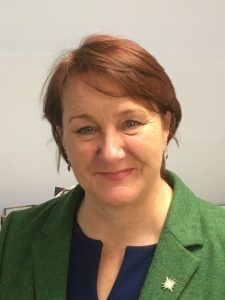By Theresa Leavy, Dorset Council Executive Director for People – Children
The tragic abduction and murder of Sarah Everard sent shock waves through our society in a week when we celebrated both International Women’s Day and Mother’s Day.

Sarah’s death and the circumstances surrounding it will be the subject of a criminal prosecution and we can only keep her, and her family and friends in our thoughts.
However, news of Sarah’s abduction from the streets of London when returning from a visit to a friend’s house and her violent death triggered an outpouring from women and girls across the country of their own experiences of harassment, sexual abuse and fear in daily life.
The overwhelming communication was one of anger, fury even. Fury at the sense of injustice that so many girls and women live their lives in this way. Of course, some men also experience these same unacceptable behaviours in their life, and many men when reading women’s accounts over this week have experienced a set of complex emotions many wishing to understand more deeply how they can make a positive difference and some feeling uncomfortable with the narrative. It is essential that in the work we do, we understand that the experience of violence and abuse of women and girls is endemic and systemic.
Violence against women remains devastatingly pervasive and starts alarmingly young. Across their lifetime, 1 in 3 women, around 736 million, are subjected to physical or sexual violence by an intimate partner or sexual violence from a non-partner – a number that has remained largely unchanged over the past decade.
Most women in the UK report having suffered harassment or abuse during their lifetime. This violence starts early: 1 in 4 young women (aged 15-24 years) who have been in a relationship will have already experienced violence by an intimate partner by the time they reach their mid-twenties.
In England and Wales in 2019-20 police recorded 55,130 rapes but only 2% (1,439) led to a conviction. By March 2020 the number of people prosecuted and convicted for rape had fallen to the lowest level since records began.
Emergencies exacerbate violence, increasing vulnerability and risks and therefore as we emerge from what we all hope is a final pandemic lockdown we need to ensure we are working together to make this tragic event a Catalyst for Change.
Dorset Police statement at the weekend stated “it is completely unacceptable for women of any age to feel unsafe whether they are at home, on the streets, in school or at work.” We stand alongside them in support of that statement.
What more can we do?
- We can talk together about (and keep on raising) the safety of women and girls and vulnerable people in their homes and on our streets
- We can call out casual sexism and unwarranted attention or harassment
- We can campaign for change in the ways in which sexual and violent crimes are treated and crucially how we support victims in our responses as a partnership.
And finally as a mother and grandmother of both girls and boys, my plea is to all the good, right thinking and feeling men of our society, and there are many and thank you to those of your who have already reached out last week. I ask you now to you use your power (which is far greater than mine in this matter) to campaign with all women allies to see this change delivered so that all future women and girls can walk the streets of our country in safety and free from fear.
Thank you.
Theresa Leavy, Executive Director for People, Children


Really powerful post Theresa about a huge issue – agree we all have a role to play in working together to end this and make sure all women are safe from violence and harm. It’s unacceptable in the 21st Century to see such shocking statistics about convictions for rape – and even worse that it’s fallen to its lowest level.